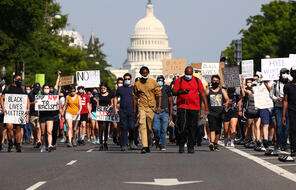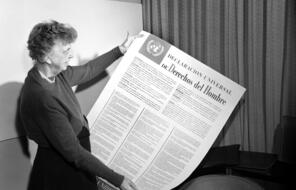Resource Library
Find compelling classroom resources, learn new teaching methods, meet standards, and make a difference in the lives of your students.
We are grateful to The Hammer Family Foundation for supporting the development of our on-demand learning and teaching resources.

Introducing Our US History Curriculum Collection
Draw from this flexible curriculum collection as you plan any middle or high school US history course. Featuring units, C3-style inquiries, and case studies, the collection will help you explore themes of democracy and freedom with your students throughout the year.
3350 Results
The Unfinished Revolution
Students explore the legacies of the Reconstruction era today, reflect on the idea of democracy as a continuous process, and consider how they can best participate in the ongoing work of strengthening our democracy.

Refining the Thesis and Finalizing Evidence Logs
In the final step of the unit assessment, students will think about unit as a whole as they answer the writing prompt and start to prepare to write a strong thesis statement for their essay.
Summative Assessment: Agency and Action in the World Today
Create a culminating experience for your students where they identify and explain an example of individual or collective agency in the world today that inspires them.

The Costs and Benefits of Belonging
Students learn about group membership and explore the range of responses available to us when we encounter exclusion, discrimination, and injustice.

Defining Human Rights
Students create a definition for a "right" in order to explore the challenges faced by the UN Commission on Human Rights to create an international framework of rights for all human beings.

Taking Ownership of the Law
Students learn about Mum Bett and Quock Walker, who successfully sued for their freedom, and reflect on what their stories illuminate about democracy today.

The Rule of Law and Why It Matters
Students explore what it means to respect the rule of law and consider its importance in a democracy.

What Does It Mean to Belong?
Students identify the range of actions they can take when confronted with exclusion. The term upstander is introduced, as well as key terms such as bystander, perpetrator, and victim.

What Makes Memphis a Community?
Students connect what they have learned about communities to their knowledge of Memphis,TN, by analyzing images of historical and local importance to the city.

What Shapes Your Identity?
Through a poem-writing activity, students broaden and deepen their understanding of identity.

Who Am I?
By asking the question "Who am I?" students explore the role that identity plays in forming their values, ideas, and actions.



